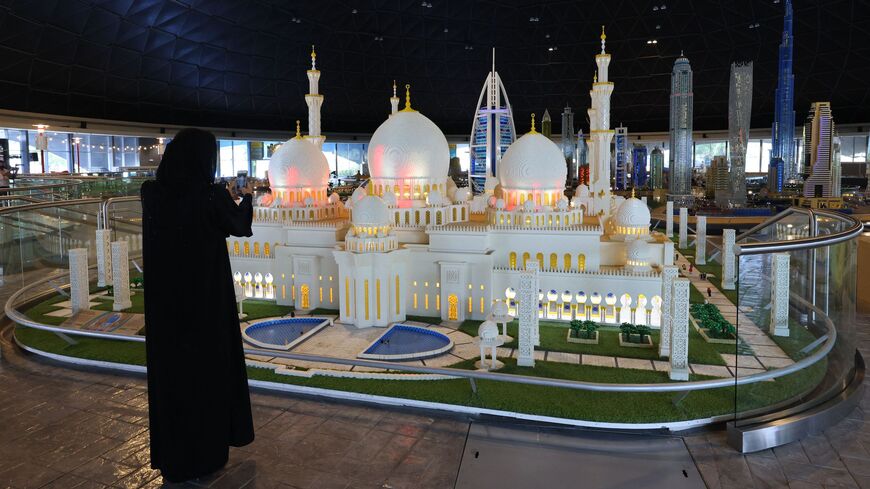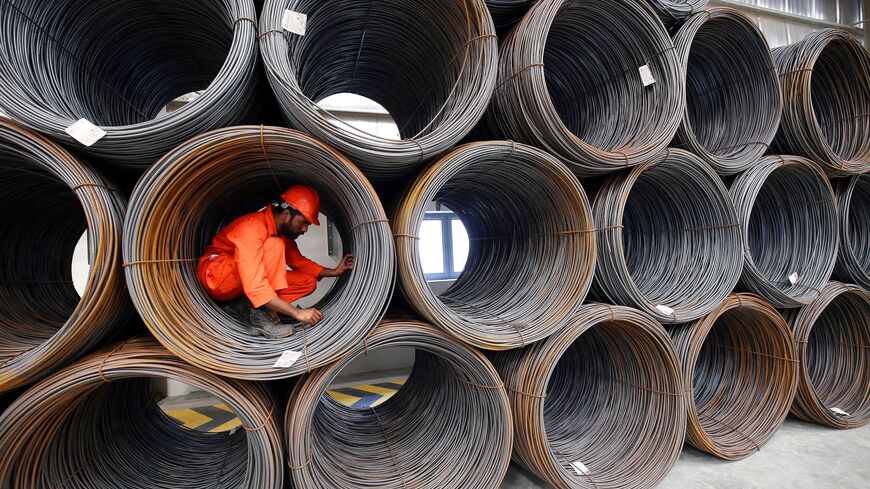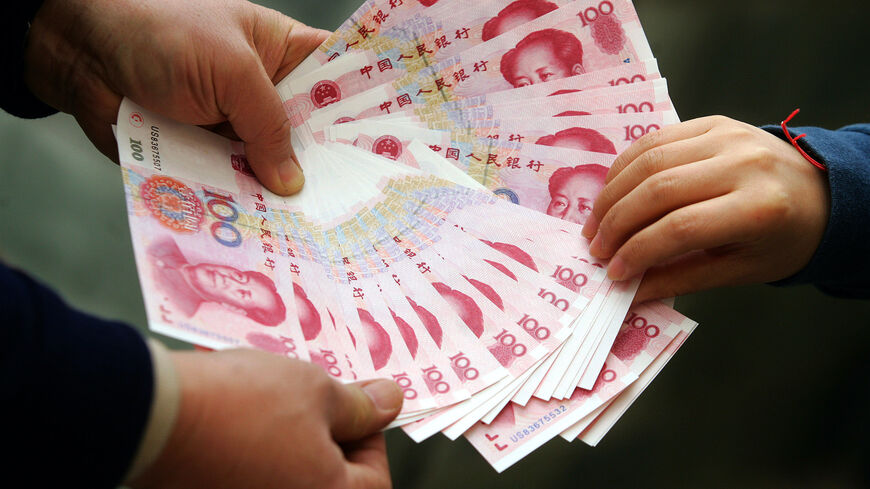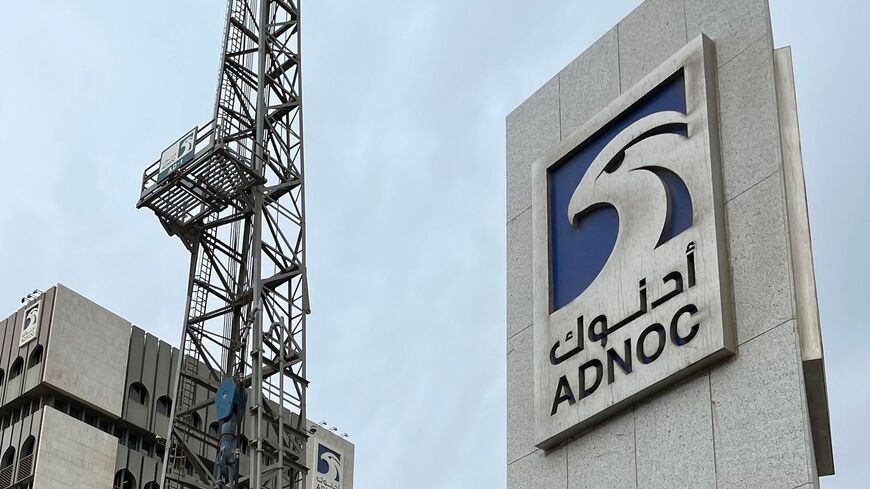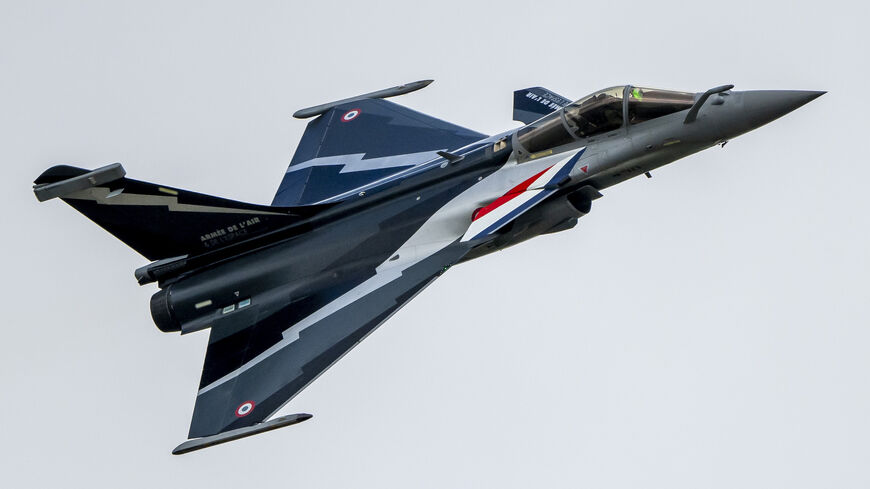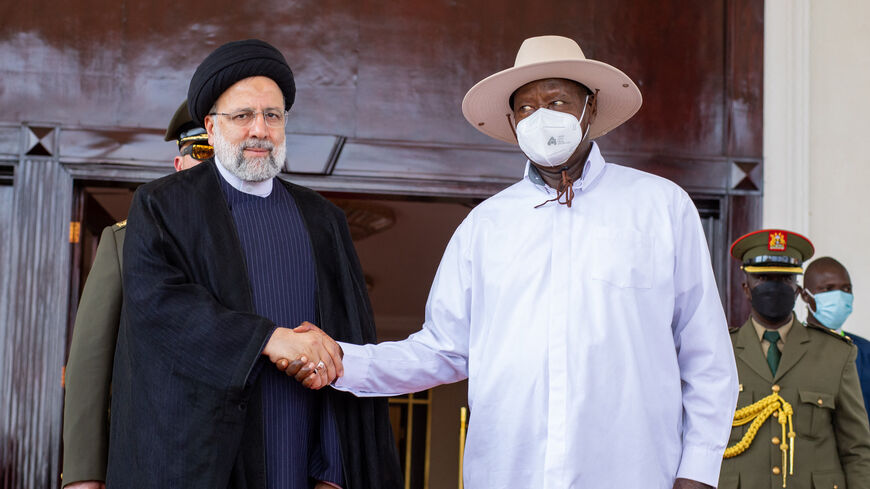Gulf’s non-oil growth offers new investment opportunities
Al-Monitor Pro Members
Sebastian Castelier
Business journalist covering Gulf economies
July 17, 2023
Saudi Arabia is “seeing a decoupling” between its oil and non-oil economies, the kingdom’s Minister of Investment Khalid Al-Falih said in May during the Qatar Economic Forum. The Gulf’s largest economy has encouraged foreign investors to invest in its emerging non-oil sectors. The non-oil segment of Gulf economies is expected to grow by 4.2% in 2023 according to the International Monetary Fund. Saudi Arabia and the United Arab Emirates (UAE) non-oil sectors should exceed the Gulf's average at 4.7% and 4.8% respectively in 2023, the World Bank forecasted.
- The six Gulf Cooperation Council (GCC) economies recorded a 7.7% growth in 2022, boosted by oil prices that surged to their highest levels since 2008 over concerns for global oil supply following Russia’s invasion of Ukraine. But it is a short-term spike. Between 2000 and 2019, the non-oil segment of the region’s gross domestic product (GDP) expanded by an average 5.9% annually. That is about 40% faster than the GCC’s overall GDP.
- Dubai, the Gulf’s first post-oil economy, offers the region’s greatest exposure to non-oil activities decorrelated from the fortunes of the fossil fuel sector. The oil sector accounts for only 1% of its pre-pandemic GDP, and the influx of non-oil correlated buying power is steady. Seven out of 10 tourists who visited the emirate in the first quarter of 2023 did not come from the Middle East.
- Still, the Gulf’s non-oil economies remain closely linked to oil volatility-induced boom and bust cycles as there is a “quite high” correlation between the two segments of Gulf economies, Jalal Qanas, an assistant professor in economics at Qatar University, told Al-Monitor. Dubai also has an indirect exposure, in particular because it serves as an indirect transit hub to Saudi Arabia’s $1.1 trillion-market, with goods transiting via Jebel Ali port and regional headquarters operating out of Dubai.
- Investors already exposed to fossil fuels through other assets and looking to diversify away from the oil prices-driven boom and bust cycles might bet on industries that capitalize on Gulf-specific assets to sell goods and services to a non-Gulf clientele. For example, segments of the hospitality sector leverage the region’s air connectivity, infrastructure, natural landscapes and religious identity to tap into the buying power of global customer bases. Transit passengers, holiday goers, sports and culture fans, conference attendees and pilgrims flocking to Saudi Arabia to perform a religious duty guarantee cash flows decoupled from fossil fuels export revenues.
- The same logic applies to products that leverage the region's essence to target customers worldwide — like Gulf pearls, for centuries viewed as a precious commodity. Nowadays, similar opportunities exist in varieties of dates like Saudi Arabia’s Ajwa date, known as the "Holy date;" extracts of Ghaf leaves; the UAE’s national tree; or Omani frankincense and derived products. The resin is the “backbone” of Amouage perfumes, an Omani fragrance brand that sells its perfumes in more than 80 countries. Another example is Oman’s growing fisheries and aquaculture sector for export.
- The technology industry does not offer investors to capitalize on Gulf-specific assets but rather on its low-tax environment, modern infrastructure and a pool of talent in finance. Dubai and Bahrain have attracted tech and crypto firms — along with their wealthy founders and executives. Here again, investors are well positioned to leverage the benefits of the hub model while looking beyond the region’s borders to earn non-oil-linked revenues. Similar opportunities exist in fintech and Islamic finance.
- The Gulf’s non-oil natural resources like solar and minerals offer opportunities inversely correlated to fossil fuel as renewables gather steam — not so much in the production of green power, which is in the hands of governments, or upstream, which is tied to contracts paid by oil-fueled public funds, but rather downstream for industries looking for decarbonized production lines equidistant from Asian, African and European markets. Saudi Arabia’s mining and metal sector is attracting global players and could do even more so as the kingdom hopes to emerge as a hub for electric vehicle production.
- A large number of sectors stand at the crossroads, exposed to the buying power fueled by oil revenues, such as the one of civil servants, but also to demand from people employed by industries catering to non-Gulf clientele.
Scenario 1: Market crowding by local entities tops investors’ concerns, not oil exposure
Saudi Arabia’s wealth fund, the Public Investment Fund (PIF), Crown Prince Mohammed bin Salman’s vehicle to overhaul the economy, is taking over the non-oil economy as it has launched 77 new companies in all strategic sectors since 2017. Critics say the new cohort of companies “has replaced one set of preferred businessmen with another." The world’s biggest cinema chain, AMC, exited the country in February 2023, throwing in the towel after it faced stiff competition from homegrown operators. The interlinkages between the oil and non-oil component of Gulf economies is a topic for investors looking to maintain a strict separation between oil and non-oil assets in their portfolios. But oil revenues will likely keep fueling the Gulf’s economy as the region, which enjoys some of the lowest extraction costs in the world in the oil and gas industry, is poised to be the last producer standing.
Scenario 2: The lack of a common market repels investors looking for Gulf exposure
Despite the customs union on intra-GCC trade, the region’s 60 million people-strong market remains fragmented, even more so in recent years as intra-Gulf economic competition heats up. “Closer integration paired with further improvements in the business environment could also attract additional FDI inflows,” the International Monetary Fund wrote in a November 2022 report. A lack of uniform regulation repels investors looking for a one-stop shop exposure to Gulf non-oil economies but will encourage others to be more country-specific, which can help them to have a more granular approach to limiting exposure to fossil fuel.
As the Gulf’s non-oil economies expand faster than the overall GDP, in line with the long-term average trend recorded since 2000, new opportunities will arise for investors looking to gain access to the region without loading up on exposure to oil volatility. Gulf countries could speed up the process and attract foreign capital by releasing data sector by sector about the degree of correlation between economic activity and fossil fuel revenues.
Sebastian Castelier has been reporting on GCC countries since 2016, with a focus on how the oil-rich region navigates the long-term energy transition economically, socially and politically. He has been a contributor to Al-Monitor since 2019 and writes for various publications, including Haaretz, Al Jazeera, The Independent and Le Temps, among others.
We're glad you're interested in this memo.
Memos are one of several features available only to PRO Expert members. Become a member to read the full memos and get access to all exclusive PRO content.

Already a Member? Sign in
The Middle East's Best Newsletters
Join over 50,000 readers who access our journalists dedicated newsletters, covering the top political, security, business and tech issues across the region each week.
Delivered straight to your inbox.
Free
What's included:
Free newsletters available:
- The Takeaway & Week in Review
- Middle East Minute (AM)
- Daily Briefing (PM)
- Business & Tech Briefing
- Security Briefing
- Gulf Briefing
- Israel Briefing
- Palestine Briefing
- Turkey Briefing
- Iraq Briefing
Premium Membership
Join the Middle East's most notable experts for premium memos, trend reports, live video Q&A, and intimate in-person events, each detailing exclusive insights on business and geopolitical trends shaping the region.
$25.00 / month
billed annually
$31.00 / month
billed monthly
What's included:
Memos - premium analytical writing: actionable insights on markets and geopolitics.
Live Video Q&A - Hear from our top journalists and regional experts.
Special Events - Intimate in-person events with business & political VIPs.
Trend Reports - Deep dive analysis on market updates.
We also offer team plans. Please send an email to pro.support@al-monitor.com and we'll onboard your team.
Already a Member? Sign in


